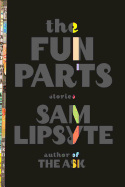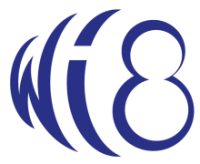 Organizers of the Winter Institute's "Marketing That Moves the Needle" panel decided to test some of their own best practices with an experiment, Meg Smith, the ABA's membership and marketing officer, said as she opened the Monday session.
Organizers of the Winter Institute's "Marketing That Moves the Needle" panel decided to test some of their own best practices with an experiment, Meg Smith, the ABA's membership and marketing officer, said as she opened the Monday session.
First, ABA's Greg Galloway designed a logo for the session that was used to promote it to attendees. Then the ABA placed coupons in welcome bags that promised a free poster for the first 10 people at the session; sent daily e-mail reminders; put flyers on the tables at other WI8 sessions; held a trivia contest on Facebook and Twitter; advertised a contest in Bookselling This Week that offered the bookstore winner a free design consultation with Galloway; and had a table at the Oscar Viewing party.
 With the help of Poll Everywhere, Galloway helped Smith track live, via smart phones and laptops, booksellers' answers to questions about what got them to attend the session. By a landslide, most attendees saw the session listed in the printed WI8 program, and the coupon in the bag attracted a few early attendees. But other efforts were not as effective: 83% of booksellers said they would have attended the session without the extra marketing; 59% described the marketing efforts as too much or annoying; 30% asked, "What e-mails?"; 74% likewise weren't aware of a trivia contest. And the panel logo and e-mails made some booksellers suspect they were being marketed to by a third party.
With the help of Poll Everywhere, Galloway helped Smith track live, via smart phones and laptops, booksellers' answers to questions about what got them to attend the session. By a landslide, most attendees saw the session listed in the printed WI8 program, and the coupon in the bag attracted a few early attendees. But other efforts were not as effective: 83% of booksellers said they would have attended the session without the extra marketing; 59% described the marketing efforts as too much or annoying; 30% asked, "What e-mails?"; 74% likewise weren't aware of a trivia contest. And the panel logo and e-mails made some booksellers suspect they were being marketed to by a third party.
Panelist Julie Wernersbach of BookPeople in Austin, Tex., which has 30,000 square feet of space on two floors, said the store does many giveaways, often using "swag from publishers." Giveaways work best, she said, when she took pictures of the swag and posted them on Facebook and Twitter. Food giveaways are also popular.
The other panelist, Jill Miner, owner of Saturn Booksellers, Gaylord, Mich., with 3,000 square feet, said that the size of the giveaways matters in her store and that the most effective way to draw attention to a particular author and attract customers is offering a chance to win a "basket of backlist" titles. To offset the cost, the store requires a book purchase at the event to participate.
During the long, free-flowing exchange of ideas, Miner said booksellers should use coupons "judiciously" if they do not want to overwhelm consumers. Bruce Delaney, owner of Rediscovered Books, Boise, Idaho, said his store will accept expired coupons. "We try to win the customer and we don't want them to have a bad experience," he said.
Mary Ann Donaghy of the Bookworm in Bernardsville, N.J., added that her store uses specials run on Foursquare, which is a social media platform that connects with users in a store. "It's not applicable everywhere, but it's free," she said. Smith urged booksellers to claim their real estate on social media like Foursquare and Google+.
Although Bookpeople has not found coupons effective at drawing new customers, e-newsletters--five of them--have helped. "In Austin, everybody sends out stuff about what bands are playing where, so it's expected," Wernersbach said. BookPeople has two newsletters tied to events; the others focus on children's books, teens and mystery readers. Miner sends out a "folksy" e-newsletter that suits the nature of her store. "I sign it at the bottom," she said. Both stores found that sending e-newsletters out late in the afternoon on workdays helped increase open rates. Saturn Booksellers also sends co-branded editions of Shelf Awareness for Readers to customers twice a week. (Editor's note: this program is open to all booksellers.)
In-store signage is still very effective, along with the electronic tools in the modern marketing toolkit, Wernersbach said. Miner calls customers who bought a book at past events when there is an upcoming event featuring that author or someone similar. "I pretend that I remember what they bought," she said, but the information is tracked at point of purchase.
At Saturn Booksellers' events, a form on every seat asks customers to share how they heard about the event and their contact info, with a drawing as a reward. The results, Miner said, help her allocate resources to the things that work best. Why spend money on ads that no one sees, she asked, if the number one way people hear of events is from store staff?
And Stephen Colbert--or at least a cut-out of him--helped one store promote Small Business Saturday last year: it took pictures of its Colbert cut-out at other local businesses. Another bookseller got a unexpected promotional boost from the absence of its Colbert cutout: someone stole the faux Colbert, which got the community talking about the store. --Bridget Kinsella
 "Just as young audiophiles are returning to LPs and culinary types assert the attraction of 'slow food,' we could very well be witnessing a retro-fueled backlash against the digital tide. It could be more than wishful thinking that the rise of e-books has slowed. Let's call the attraction of ink on paper the 'slow books' movement."
"Just as young audiophiles are returning to LPs and culinary types assert the attraction of 'slow food,' we could very well be witnessing a retro-fueled backlash against the digital tide. It could be more than wishful thinking that the rise of e-books has slowed. Let's call the attraction of ink on paper the 'slow books' movement."






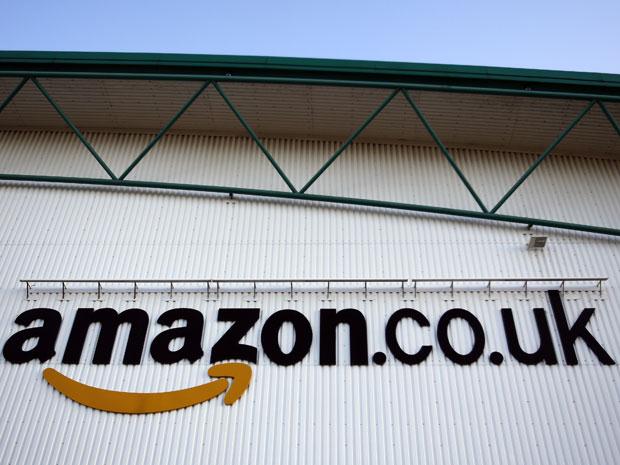 A
A 
 German bookstore chains Thalia, Weltbild and Hugendubel are partnering with Bertelsmann and Deutsche Telekom to
German bookstore chains Thalia, Weltbild and Hugendubel are partnering with Bertelsmann and Deutsche Telekom to  Giskan Solotaroff Anderson & Stewart, a New York City law firm that boasts of having "consistently delivered big results for our clients and, in our class actions, for consumers and small businesses injured by deceptive and unlawful conduct," is, it said, "investigating the practices" of Author Solutions and its subsidiaries AuthorHouse, iUniverse, Trafford, Xlibris, Inkubook and Wordclay. The firm said, "Authors using Author Solutions have complained of deceptive practices, including enticing authors to purchase promotional services that are not provided or are worthless, failing to pay royalties, and spamming authors and publishing blogs/sites with promotional material."
Giskan Solotaroff Anderson & Stewart, a New York City law firm that boasts of having "consistently delivered big results for our clients and, in our class actions, for consumers and small businesses injured by deceptive and unlawful conduct," is, it said, "investigating the practices" of Author Solutions and its subsidiaries AuthorHouse, iUniverse, Trafford, Xlibris, Inkubook and Wordclay. The firm said, "Authors using Author Solutions have complained of deceptive practices, including enticing authors to purchase promotional services that are not provided or are worthless, failing to pay royalties, and spamming authors and publishing blogs/sites with promotional material."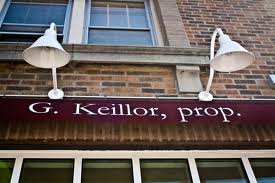 Garrison Keillor and his bookstore,
Garrison Keillor and his bookstore, 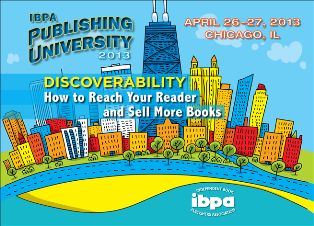 The 25th annual IBPA Publishing University will be held April 26-27 in Chicago, Ill., at the Palmer House. The opening keynote will be given by Guy Kawasaki, former chief evangelist at Apple, founder of several tech companies, including Garage.com, and author of 10 books, the most recent of which is APE: Author, Publisher, Entrepreneur/How to Publish a Book. Other keynote speakers are Dominique Raccah, owner of Sourcebooks, and David Houle, futurist and author of Entering the Shift Age. Additional speakers include Allen Lau of Wattpad; Allen Lau of Wattpad; Dan Poynter, author of The Self Publishing Manual; Mark Coker of Smashwords; and Brian Felsen of Bookbaby.
The 25th annual IBPA Publishing University will be held April 26-27 in Chicago, Ill., at the Palmer House. The opening keynote will be given by Guy Kawasaki, former chief evangelist at Apple, founder of several tech companies, including Garage.com, and author of 10 books, the most recent of which is APE: Author, Publisher, Entrepreneur/How to Publish a Book. Other keynote speakers are Dominique Raccah, owner of Sourcebooks, and David Houle, futurist and author of Entering the Shift Age. Additional speakers include Allen Lau of Wattpad; Allen Lau of Wattpad; Dan Poynter, author of The Self Publishing Manual; Mark Coker of Smashwords; and Brian Felsen of Bookbaby. With the help of Poll Everywhere, Galloway helped Smith track live, via smart phones and laptops, booksellers' answers to questions about what got them to attend the session. By a landslide, most attendees saw the session listed in the printed WI8 program, and the coupon in the bag attracted a few early attendees. But other efforts were not as effective: 83% of booksellers said they would have attended the session without the extra marketing; 59% described the marketing efforts as too much or annoying; 30% asked, "What e-mails?"; 74% likewise weren't aware of a trivia contest. And the panel logo and e-mails made some booksellers suspect they were being marketed to by a third party.
With the help of Poll Everywhere, Galloway helped Smith track live, via smart phones and laptops, booksellers' answers to questions about what got them to attend the session. By a landslide, most attendees saw the session listed in the printed WI8 program, and the coupon in the bag attracted a few early attendees. But other efforts were not as effective: 83% of booksellers said they would have attended the session without the extra marketing; 59% described the marketing efforts as too much or annoying; 30% asked, "What e-mails?"; 74% likewise weren't aware of a trivia contest. And the panel logo and e-mails made some booksellers suspect they were being marketed to by a third party.  Tomorrow is pub date for How to Get Filthy Rich in Rising Asia by Mohsin Hamid (Riverhead), which the author dedicated to his wife, Zahra. In a bit of serendipity, Hamid will make his first appearance for the book tonight at the Odyssey Bookshop, South Hadley, Mass.--where he met his wife for the first time. That meeting took place in the spring of 2001, when Hamid did a reading for his first novel, Moth Smoke, which drew Zahra, who at the time was a student at Mount Holyoke College. Two years later, they met again in London, and the rest is, as they might say, sweet history. Hamid commented, "It seems somehow miraculous that the first place in the world that I will go to present this novel is the same place our paths first crossed. I could quote Rick from Casablanca: 'Of all the gin joints in all the world....' "
Tomorrow is pub date for How to Get Filthy Rich in Rising Asia by Mohsin Hamid (Riverhead), which the author dedicated to his wife, Zahra. In a bit of serendipity, Hamid will make his first appearance for the book tonight at the Odyssey Bookshop, South Hadley, Mass.--where he met his wife for the first time. That meeting took place in the spring of 2001, when Hamid did a reading for his first novel, Moth Smoke, which drew Zahra, who at the time was a student at Mount Holyoke College. Two years later, they met again in London, and the rest is, as they might say, sweet history. Hamid commented, "It seems somehow miraculous that the first place in the world that I will go to present this novel is the same place our paths first crossed. I could quote Rick from Casablanca: 'Of all the gin joints in all the world....' "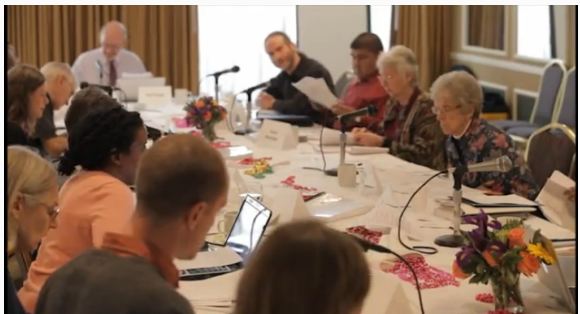 A New New Testament: A Bible for the 21st Century Combining Traditional and Newly Discovered Texts
A New New Testament: A Bible for the 21st Century Combining Traditional and Newly Discovered Texts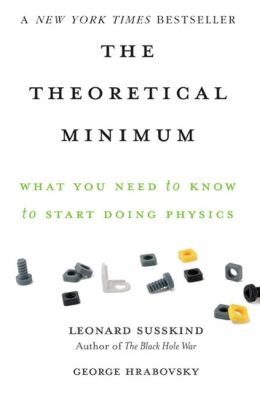 Mathematical equations in trade books=low sales.
Mathematical equations in trade books=low sales.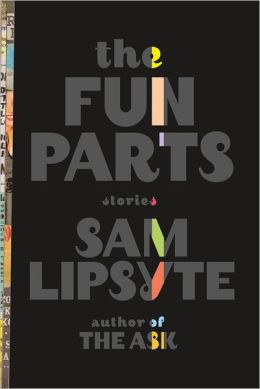 The Fun Parts is precisely the type of collection one would expect from the author of novels like The Ask, a biting satire about a disgruntled college fundraiser. Together, these 13 acid-tipped stories, many of which appeared in publications like the New Yorker and the Paris Review, paint a grimly funny view of contemporary American life.
The Fun Parts is precisely the type of collection one would expect from the author of novels like The Ask, a biting satire about a disgruntled college fundraiser. Together, these 13 acid-tipped stories, many of which appeared in publications like the New Yorker and the Paris Review, paint a grimly funny view of contemporary American life.